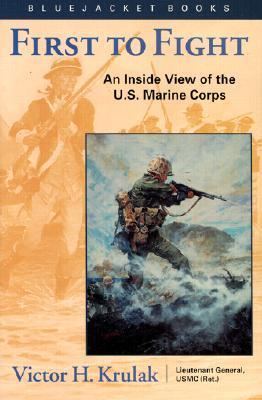After having served in the Corps for what must have been eight years or so, an edict from on high came down that all Marines, of every rank, were required to read this book. I don't know how formal the original order actually was, but if memory serves me correctly, a MARADMIN may have even went out about it.
Whatever the case may have been, I dutifully went out and found myself a copy of it. I purchased the book without my usual background research on whether or not the book was worthy of the money. To do so, after being sent such a strong message that it was to be read, would have been willfully disobedient. Some orders aren't meant to be questioned or clarified. This was one of them. Plus, at the time, I had the disposable income for such things and wanted to be able to highlight and make notes in the margins if I felt compelled to do so ... things you can't do with a library book or somebody else's copy that you've borrowed.
So, I got the book and set down to read it, but truth be told, I was a bit skeptical. I thought to myself, How good could this book really be (especially if it is one that everyone has to read)? Was it going to be a yawner that I'd have to force myself to read? How on earth could one book appeal to every rank in the Corps? God only knows that there had been a few selections on the Commandant's Professional Reading List that I just simply did not enjoy.
But having said all of that, let's just say that all of my doubts about the worthiness of this book were quickly quelled. As my highlighting would soon reveal, this book is chock full of things I had never known about the Corps ... things that were important to know ... things that every Marine needed to know ... from the youngest and spryest of privates to the most wizened and hardened of generals.
And the single most striking thing I took away from the book is how many times others have tried to disband this merry "band of brothers" ... this merry band of brothers that refuses to go away, that refuses to fall to bended knee, that refuses to crumble no matter how many slings and arrows on the battlefield or behind closed doors are hurled at it.
To all Marines, past, present, and future, and all those who respect them, and all those who are protected by them, ...
Semper Fidelis
... may you live on well beyond your enemies have been dead and buried.
Indeed, may you live on forever.

